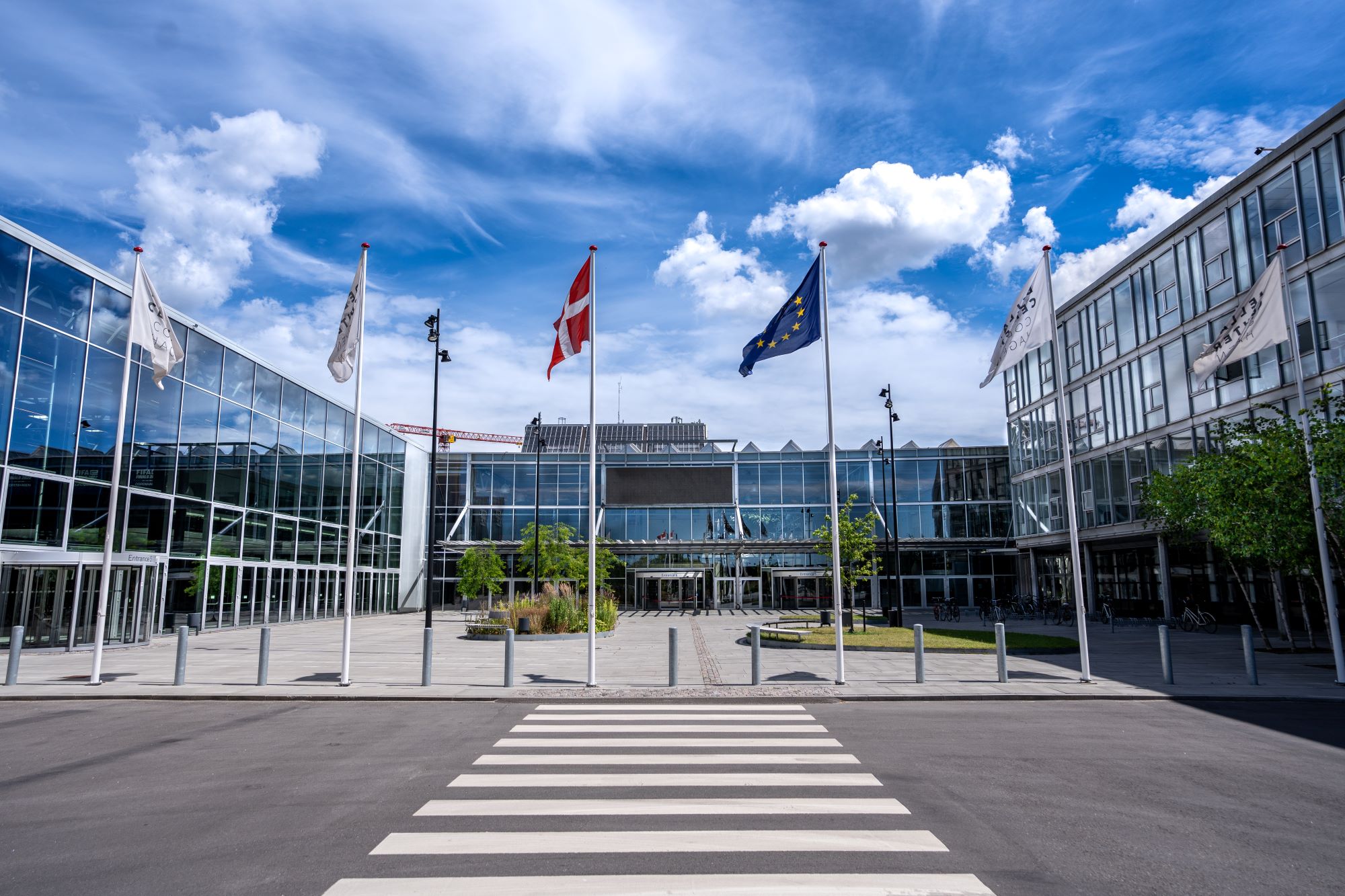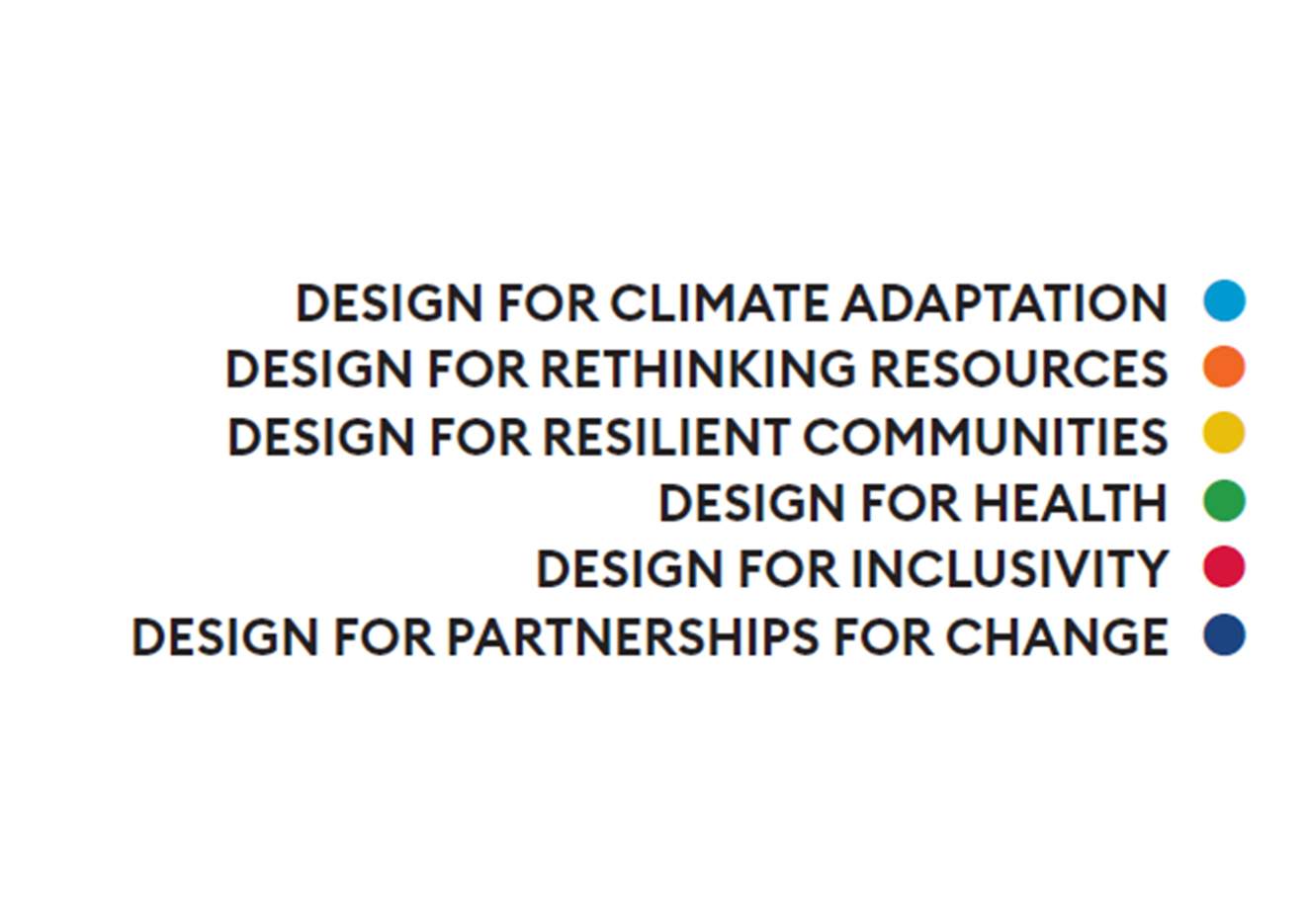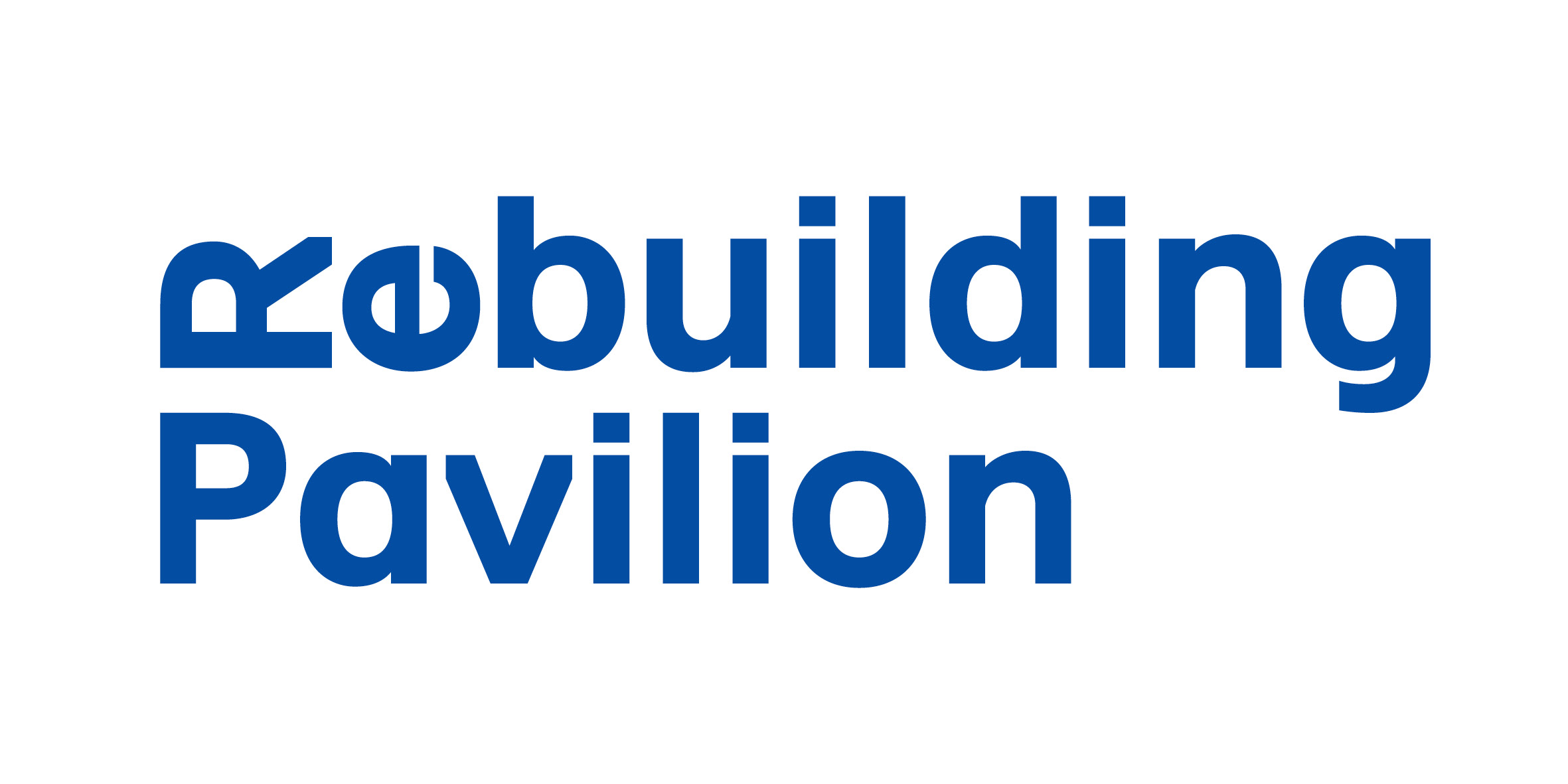More than 6,000 participants from 135 countries attended the world’s largest event for sustainable architecture, the UIA World Congress of Architects in Copenhagen, this week. Prominent researchers and practitioners across borders and generations discussed how they can design to combat climate change, increase biodiversity and promote social inclusion. The congress concluded with the launch of 10 principles for rapid and radical change in the built environment – titled “The Copenhagen Lessons”.
THE UIA WORLD CONGRESS OF ARCHITECTS STATES A NEW SUSTAINABLE BEGINNING
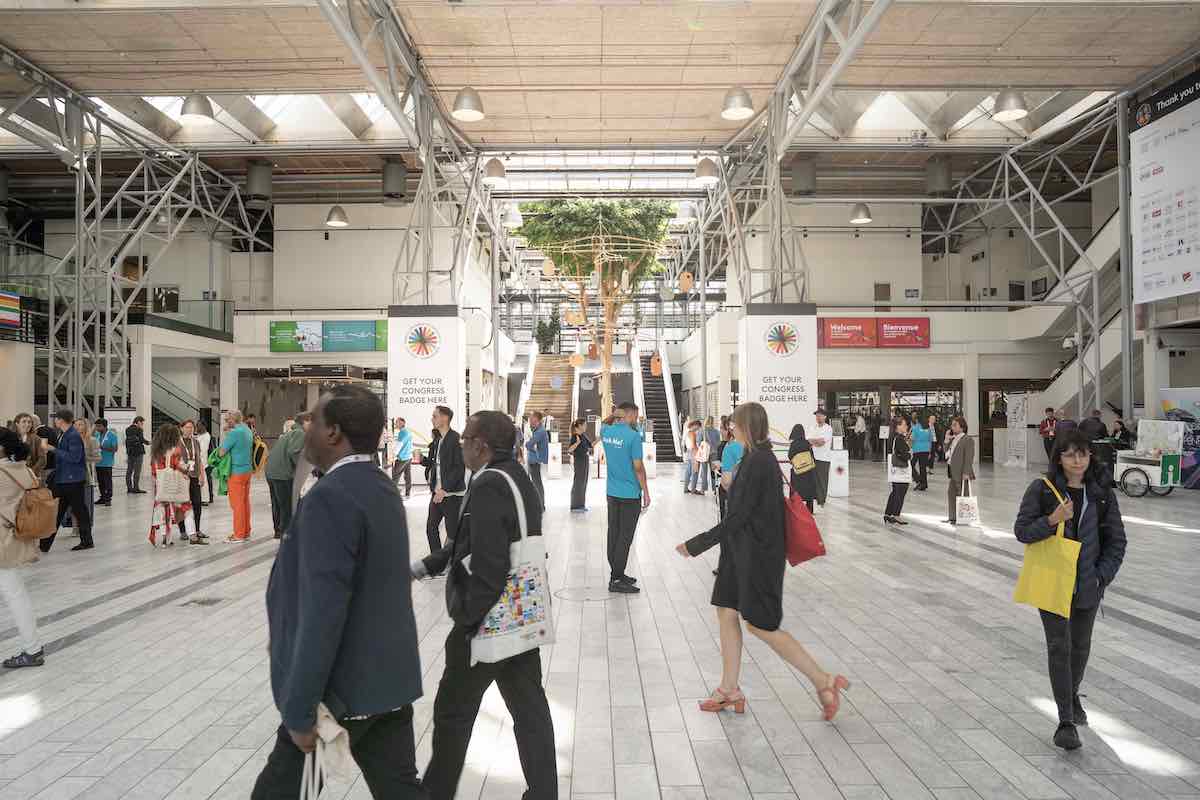
The UIA World Congress of Architects 2023 took place 2-6 July in Copenhagen, Denmark. The overarching theme of the congress was “Sustainable Futures – Leave No One Behind” and the vast congress programme featured more than 150 sessions and more than 400 speakers from all over the world.
Over the course of the congress, esteemed architects, emerging talents, scientists, business leaders, and influential politicians engaged in fruitful discussions, sharing knowledge, cases, insights, and visions. The Science Track sessions of the congress gathered some of the world’s foremost experts in their fields to identify solutions to the challenges facing architecture today with more than 250 Science Papers. The perspective of students and young professionals was brought into play for a nuanced and diverse understanding through a series of “Next Gen” sessions in the official programme.

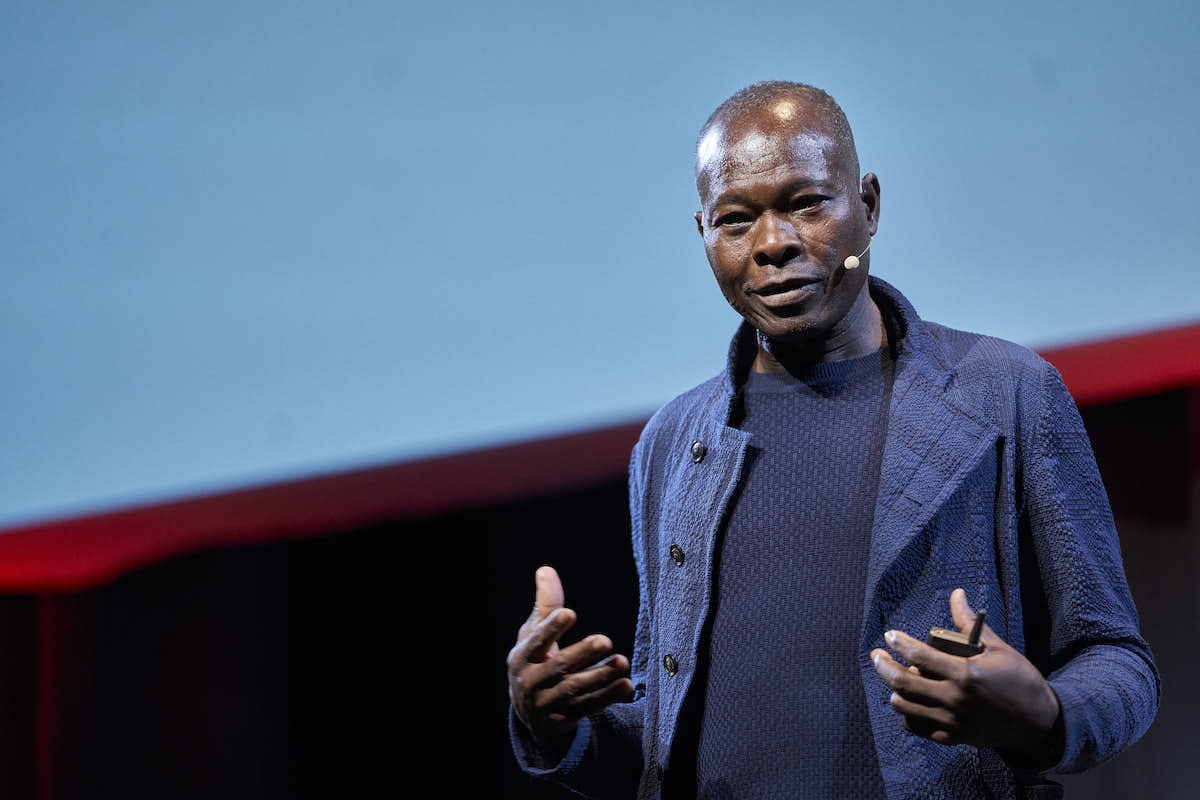
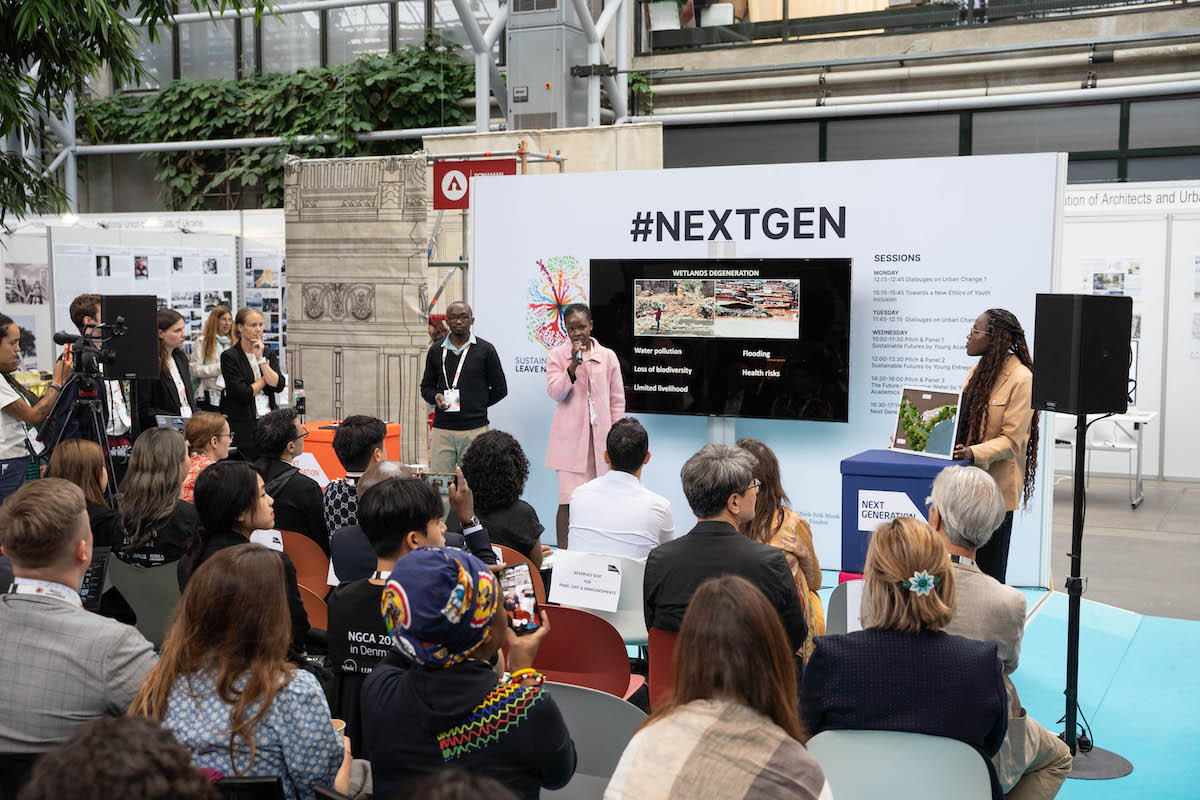
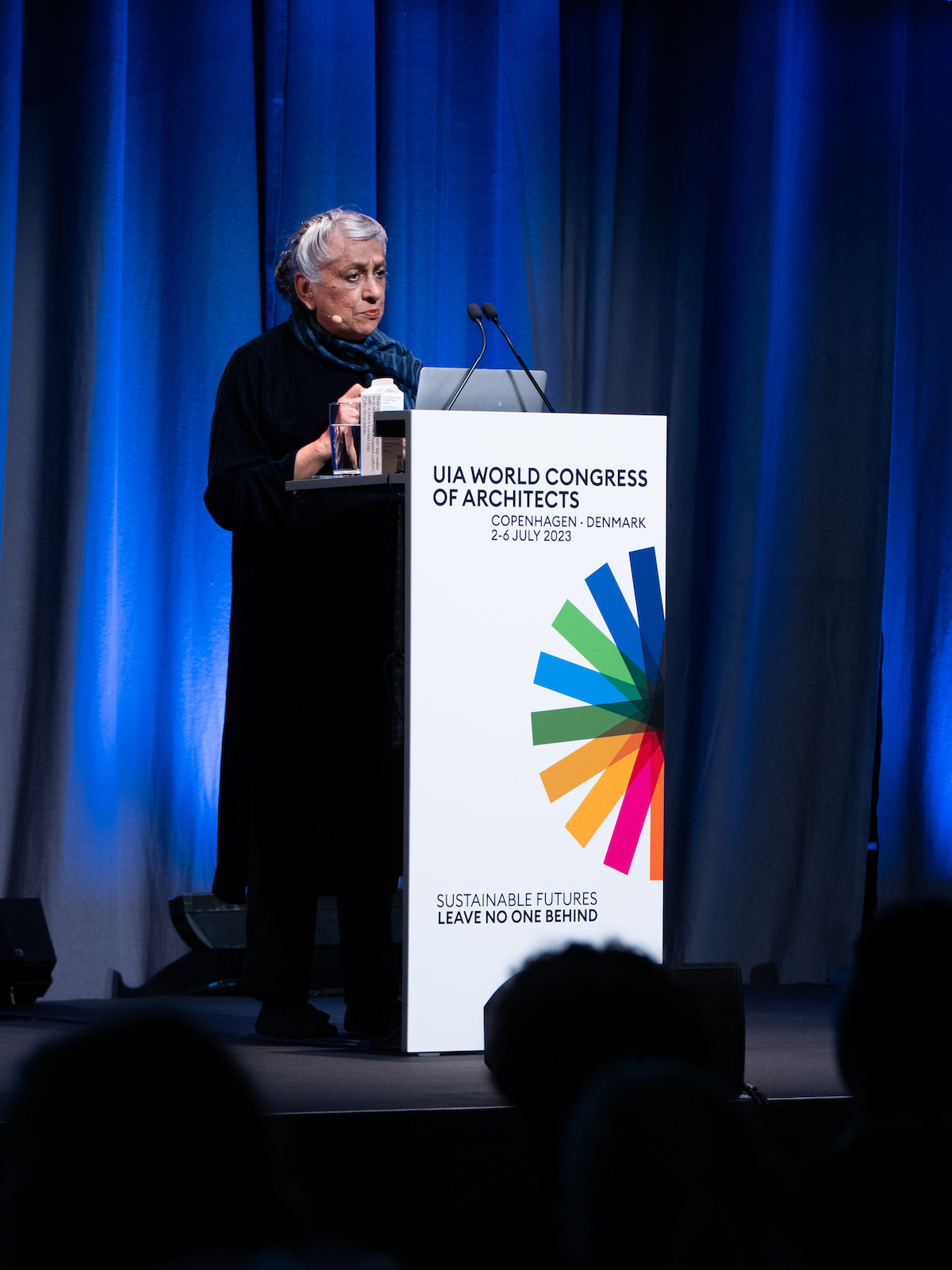
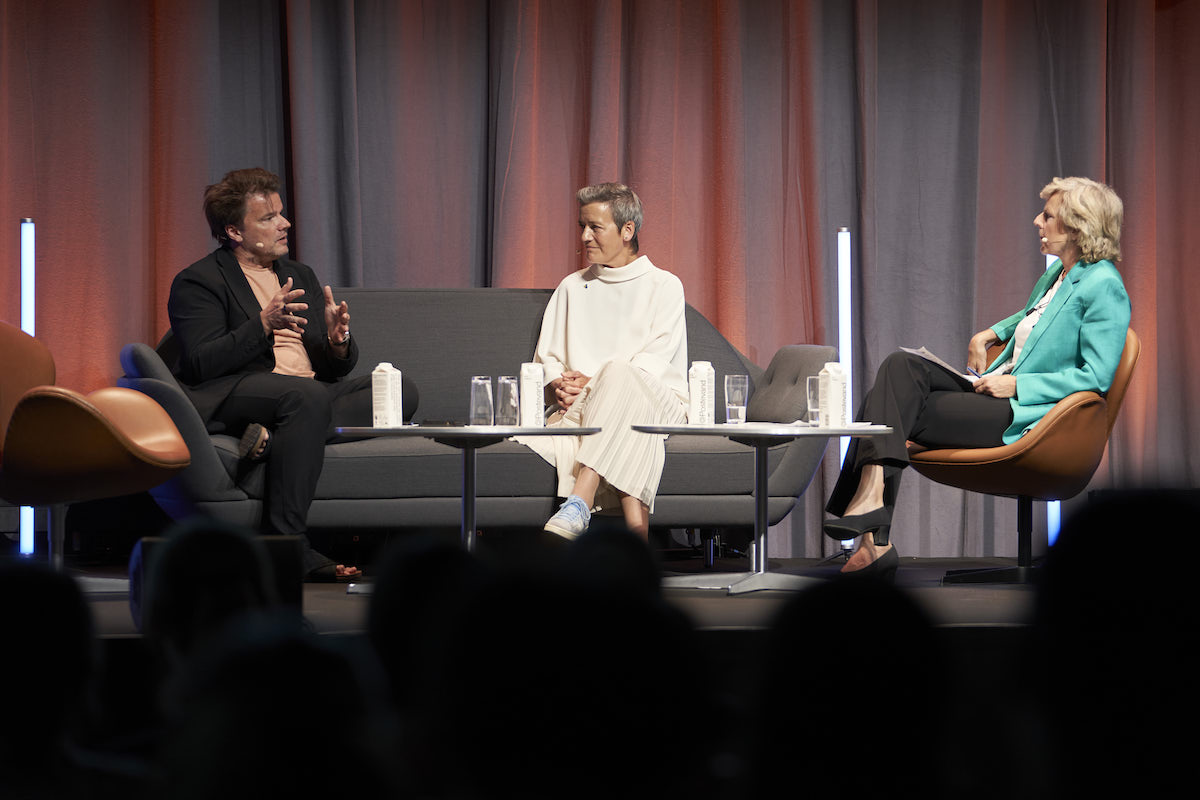
“THE COPENHAGEN LESSONS” – 10 SUSTAINABLE DEVELOPMENT PRINCIPLES IN THE BUILT ENVIRONMENT
As the culmination of the four-day world congress, the President of Congress Natalie Mossin presented “The Copenhagen Lessons” consisting of 10 principles for a rapid and radical change in the built environment to reach the UN’s 17 Sustainable Development Goals (the SDGs).
The congress demonstrated that the architectural solutions are already here, contributing to sustainable communities and quality of life. However, the built environment is also an active part of the current challenges: a major consumer of energy and natural resources, and a producer of waste – and it can have a huge impact on both inequality and public health. The construction industry alone accounts for 40% of global CO2 emissions and 35% of total waste, which calls for urgent action.
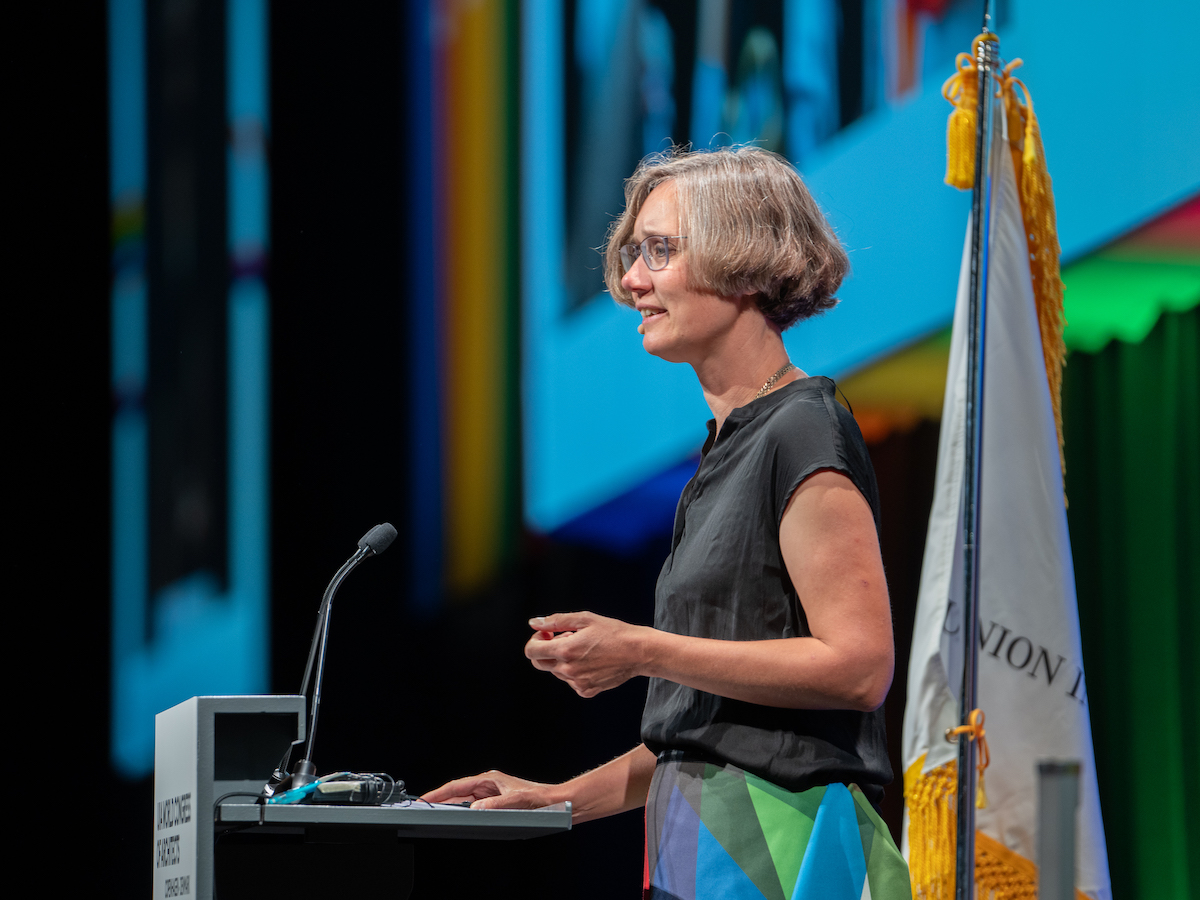
The Sustainable Development Goals define a crucial global agenda, which the built environment must contribute to. How we act on this must be bold – even radical, compared with current practice. With “The Copenhagen Lessons”, we present 10 principles for what that means when we construct, plan and develop the built environment. The health of the planet and basic human needs are on the line, we have no time to waste,” stated Natalie Mossin, President of UIA World Congress of Architects 2023.
The 10 principles are:
THE COPENHAGEN LESSONS
1. Dignity and agency for all people is fundamental in architecture, there is no beauty in exclusion.
2. People at risk of being left behind must be accommodated first when we construct, plan, and develop the built environment.
3. Existing built structures must always be reused first.
4. No new development must erase green fields.
5. Natural ecosystems and food production must be sustained regardless of the built context.
6. No virgin mineral material must be used in construction when reuse is possible.
7. No waste must be produced or left behind in construction.
8. When sourcing materials for construction, local, renewable materials come first.
9. In everything we build, carbon capture must exceed carbon footprint.
10. When developing, planning, and constructing the built environment, every activity must have a positive impact on water ecosystems and clean water supply.
The 10 principles have been determined in collaboration between the UIA World Congress of Architects 2023, Royal Danish Academy – Architecture, Design, Conservation, and the Danish Association of Architects, in partnership with Rambøll and Henning Larsen, who act as knowledge partners.
“The Copenhagen Lessons” aim to create a common language to accelerate change in the industry, both for practitioners and investors, but also to encourage politicians to support local, national, and global built environment legislation. To apply such radical change in and across industries, knowledge-sharing and partnerships are necessary to prioritise and localise efforts and resources.
THE END IS A NEW BEGINNING
After an intense congress-week and years of planning, Congress CEO Mette Lindberg looks at the outcome with both joy and gratitude:
“It has been a fantastic but also very moving experience. Speakers and participants have generously shared their professional knowledge and personal experiences, and a myriad of new connections and friendships have been established. Since we started the preparations, it has been of great importance to us, that the congress would have both a big impact and a strong legacy. I am convinced that “The Copenhagen Lessons” and the many new alliances will ensure that we end the World Congress with the beginning of something new.”, says Mette Lindberg, CEO of the UIA World Congress in Copenhagen 2023.


